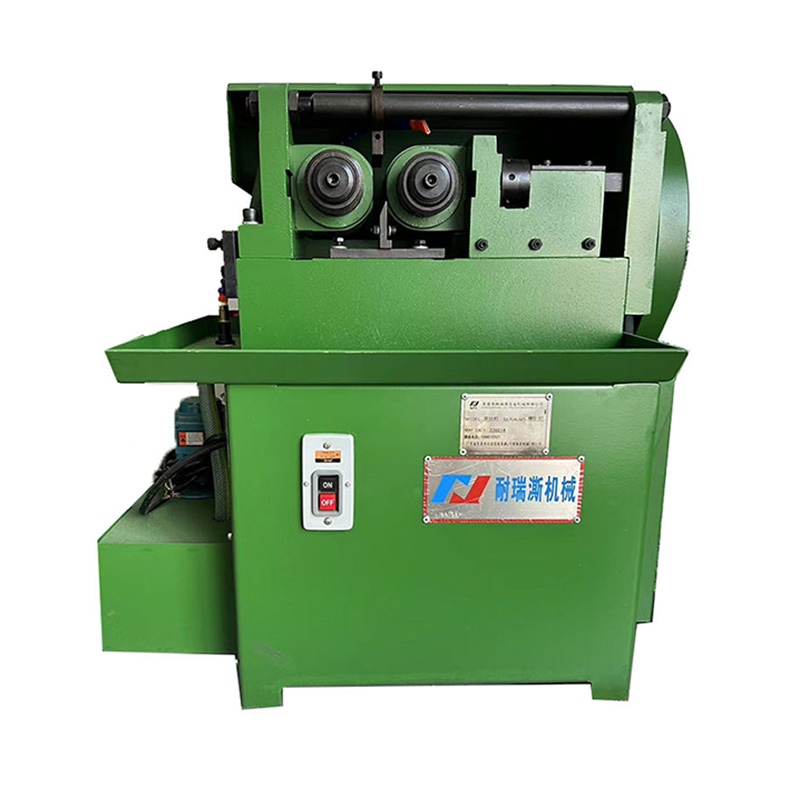Exploring the Building Blocks: Materials Used in Small Rebar Thread Rolling Machines
2024-04-16
In the realm of construction and metalworking, the choice of materials is critical to ensuring the durability, reliability, and performance of machinery and equipment. Small Rebar Thread Rolling Machines, specialized devices designed to create threaded patterns on rebars, are no exception. The construction of these machines relies on carefully selected materials that can withstand the rigors of industrial use while maintaining precision and efficiency. Let's delve into the materials commonly used in the construction of Small Rebar Thread Rolling Machines to understand their importance in the manufacturing process.
Steel Alloys: The Foundation of Strength
Steel alloys are the backbone of Small Rebar Thread Rolling Machines, providing strength, durability, and resistance to wear and corrosion. Various types of steel alloys are used in different components of the machine, each chosen for its specific properties and performance requirements:
1. Frame and Structure: The main frame and structural components of the machine are typically constructed from high-strength steel alloys, such as carbon steel or alloy steel. These materials provide the necessary rigidity and support to withstand the forces generated during operation.
2. Rolling Dies: Rolling dies, which are crucial for creating threaded patterns on rebars, are often made from tool steel or high-speed steel (HSS). These materials offer excellent wear resistance and hardness, ensuring long-lasting performance and precision in the threading process.
3. Gears and Shafts: Gears, shafts, and other rotating components of the machine are commonly manufactured from hardened steel alloys to withstand the stresses and strains of continuous operation. Heat-treated steels with specific hardness levels are used to ensure smooth and efficient power transmission.
Non-Ferrous Metals: Enhancing Performance
In addition to steel alloys, Small Rebar Thread Rolling Machines may incorporate non-ferrous metals in certain components to enhance performance and functionality:
1. Aluminum Alloys: Aluminum alloys are lightweight yet strong, making them suitable for use in components where weight reduction is desired without sacrificing durability. Aluminum parts may be used in motor housings, covers, and other non-load-bearing components of the machine.
2. Brass and Bronze: Brass and bronze are corrosion-resistant metals that are often used in bearings, bushings, and other friction-reducing components of the machine. These materials offer excellent self-lubricating properties and help minimize wear and maintenance requirements.
Composite Materials: Balancing Strength and Weight
In some cases, Small Rebar Thread Rolling Machines may incorporate composite materials to achieve a balance between strength, weight, and performance:
1. Fiberglass-Reinforced Plastic (FRP): FRP composites are lightweight yet strong materials that can be used in non-structural components of the machine, such as covers, panels, and guards. These materials offer excellent resistance to corrosion, chemicals, and environmental factors.
Conclusion: Building for Performance and Durability
In conclusion, the construction of Small Rebar Thread Rolling Machines relies on a careful selection of materials to ensure optimal performance, durability, and reliability. Steel alloys form the foundation of strength, providing the structural integrity and wear resistance necessary for continuous operation. Non-ferrous metals such as aluminum, brass, and bronze enhance performance and functionality in specific components, while composite materials offer a balance between strength and weight. By leveraging the unique properties of these materials, manufacturers can engineer Small Rebar Thread Rolling Machines that meet the demands of modern construction practices, contributing to efficiency and excellence in the industry.


